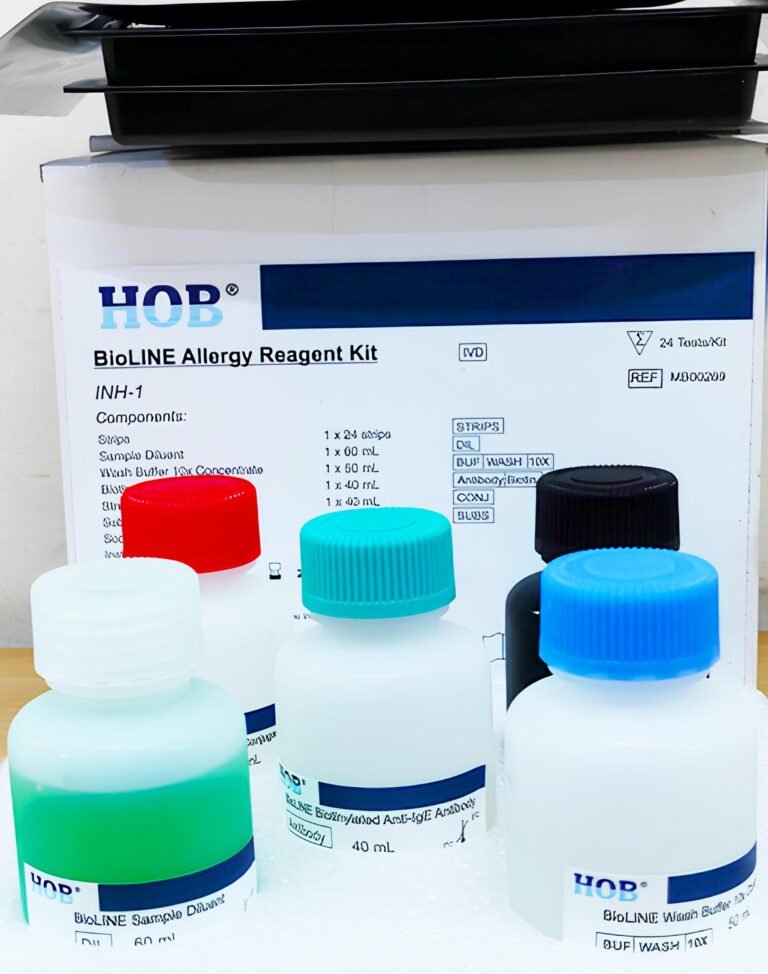Understanding the Anti-DGP IgG ELISA: A Diagnostic Breakthrough in Celiac Disease Detection
Celiac disease is an autoimmune disorder that affects millions of people worldwide. The condition is triggered by an immune response to gluten, a protein commonly found in wheat, rye, and barley. When individuals with celiac disease consume gluten, their immune system mistakenly attacks the lining of the small intestine, leading to various gastrointestinal symptoms and malabsorption of nutrients. Early and accurate diagnosis of celiac disease is crucial to prevent complications and improve the quality of life for affected individuals. The Anti-DGP IgG ELISA (Enzyme-Linked Immunosorbent Assay) has emerged as a valuable tool for diagnosing celiac disease, providing enhanced sensitivity and specificity compared to conventional tests.
What is Anti-DGP IgG?
Anti-DGP IgG refers to antibodies targeting deamidated gliadin peptides (DGP), which are formed when the gluten protein is processed by an enzyme called tissue transglutaminase (tTG). In celiac disease, the immune system recognizes DGP as foreign invaders, leading to the production of IgG antibodies against them. These antibodies are specific markers of celiac disease and play a crucial role in its pathogenesis.
The Role of Anti-DGP IgG ELISA in Celiac Disease Diagnosis
Traditional diagnostic methods for celiac disease include serological tests for antibodies such as anti-tissue transglutaminase (anti-tTG) and anti-endomysium (EMA) antibodies. While these tests have shown considerable sensitivity and specificity, they are not foolproof and can yield false-negative or false-positive results in certain situations.
The introduction of the Anti-DGP IgG ELISA has significantly improved celiac disease diagnosis. The ELISA test detects the presence and quantity of Anti-DGP IgG antibodies in a blood sample. It offers several advantages over conventional tests:
Enhanced Sensitivity: The Anti-DGP IgG ELISA demonstrates superior sensitivity, especially in cases where celiac disease is in its early stages or when individuals are already on a gluten-free diet. This makes it particularly valuable in detecting the condition when traditional tests might yield negative results.
Specificity: Anti-DGP IgG ELISA has been found to have a high specificity for celiac disease, reducing the likelihood of false-positive results. This specificity helps avoid unnecessary follow-up procedures and dietary restrictions for individuals who do not have the disease.
Alternative Testing for Seronegative Celiac Disease: A subset of individuals with celiac disease, known as seronegative celiac disease, may not show elevated levels of conventional antibodies like anti-tTG and EMA. The Anti-DGP IgG ELISA can be instrumental in identifying celiac disease in these cases, offering an alternative testing method.
Monitoring Disease Progression: The Anti-DGP IgG ELISA can be valuable for monitoring disease progression and assessing adherence to a gluten-free diet in individuals already diagnosed with celiac disease. It provides a quantitative measure of Anti-DGP IgG levels, allowing healthcare professionals to track changes over time.
Conclusion
The Anti-DGP IgG ELISA has revolutionized the diagnosis of celiac disease, providing a more sensitive and specific approach compared to conventional serological tests. Its ability to detect antibodies against deamidated gliadin peptides offers several advantages, including early detection, improved sensitivity in seronegative cases, and better disease monitoring. As the medical community continues to gain insights into autoimmune diseases and diagnostic techniques evolve, the Anti-DGP IgG ELISA remains a critical tool in the fight against celiac disease, leading to earlier interventions and better outcomes for those affected.







